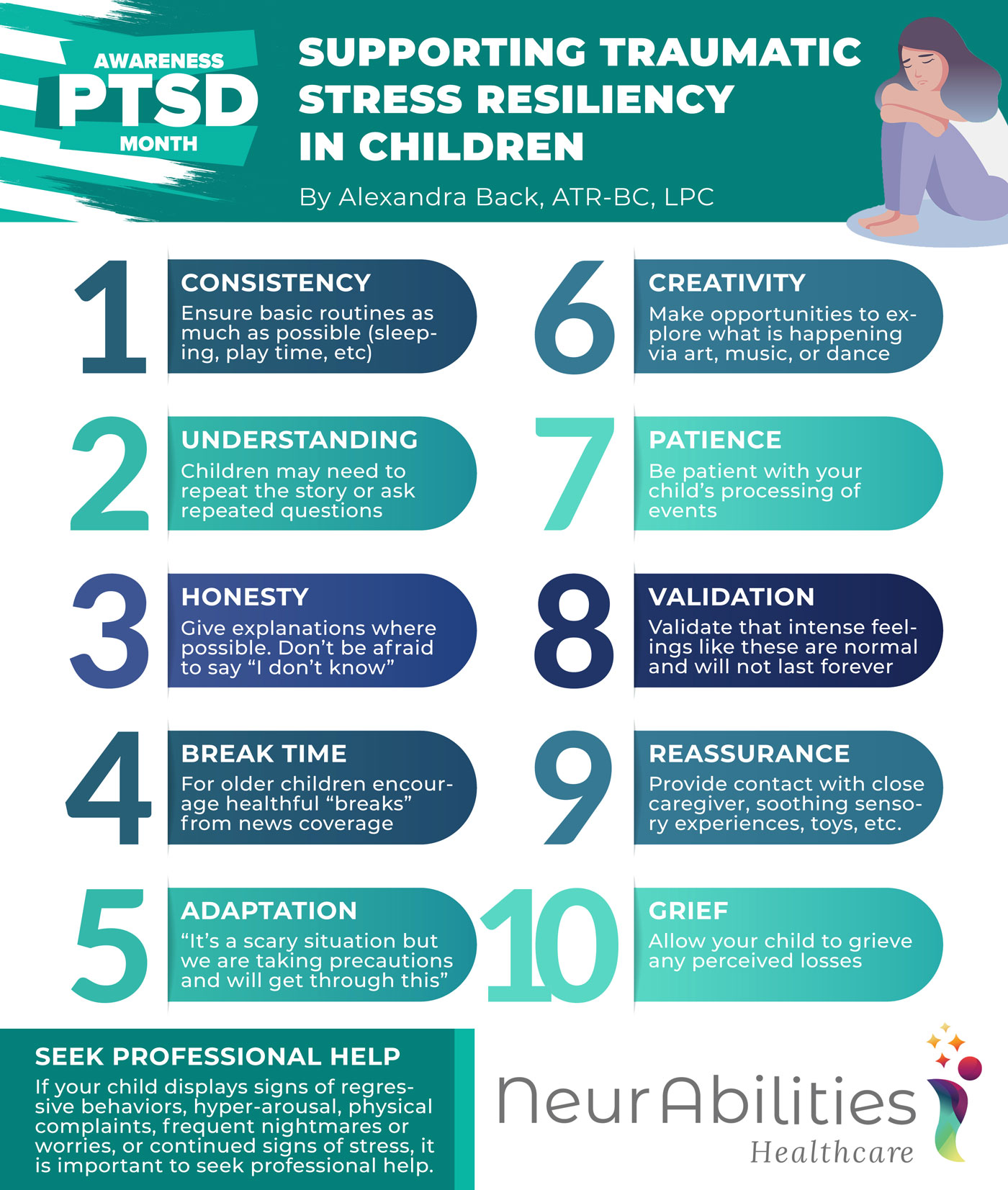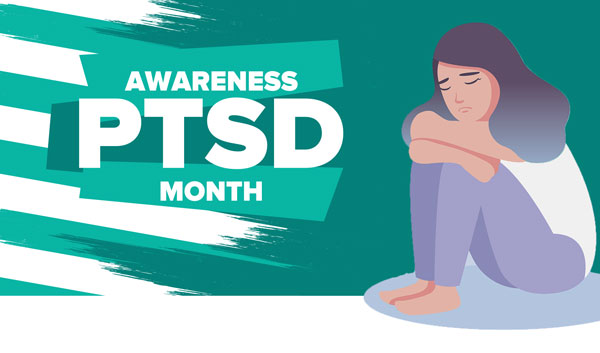
By Alexandra Back, ATR-BC, LPC, Director of Creative Arts Therapies at NeurAbilities
- Ensure consistency in basic routines as much as possible (sleeping, eating, exercise, play time, family time).
- Make opportunities to talk about, play, or use creative outlets to explore what is happening (such as art, music, or dance).
- Understand that children may need to repeat the story of what is happening or ask repeated questions.
- Be patient with your child’s processing of events.
- Be honest and give age-appropriate explanations where possible. Don’t be afraid to say you don’t know all of the answers.
- Validate that intense or worried feelings during situations like these are normal and will not last forever.
- For older children and teenagers, encourage healthful “breaks” from news coverage and/or social media, and limit exposure for younger children entirely.
- Provide reassurance through contact with close caregiver, soothing sensory experiences, toys, comforting materials, etc.
- Model adaptive thinking such as “This is a scary situation but we are taking precautions and will get through this.”
- Allow your child to grieve any perceived losses.
If your child displays signs of regressive behaviors, hyper-arousal, physical complaints, frequent nightmares or worries, or continued signs of stress, it is important to seek professional help.



